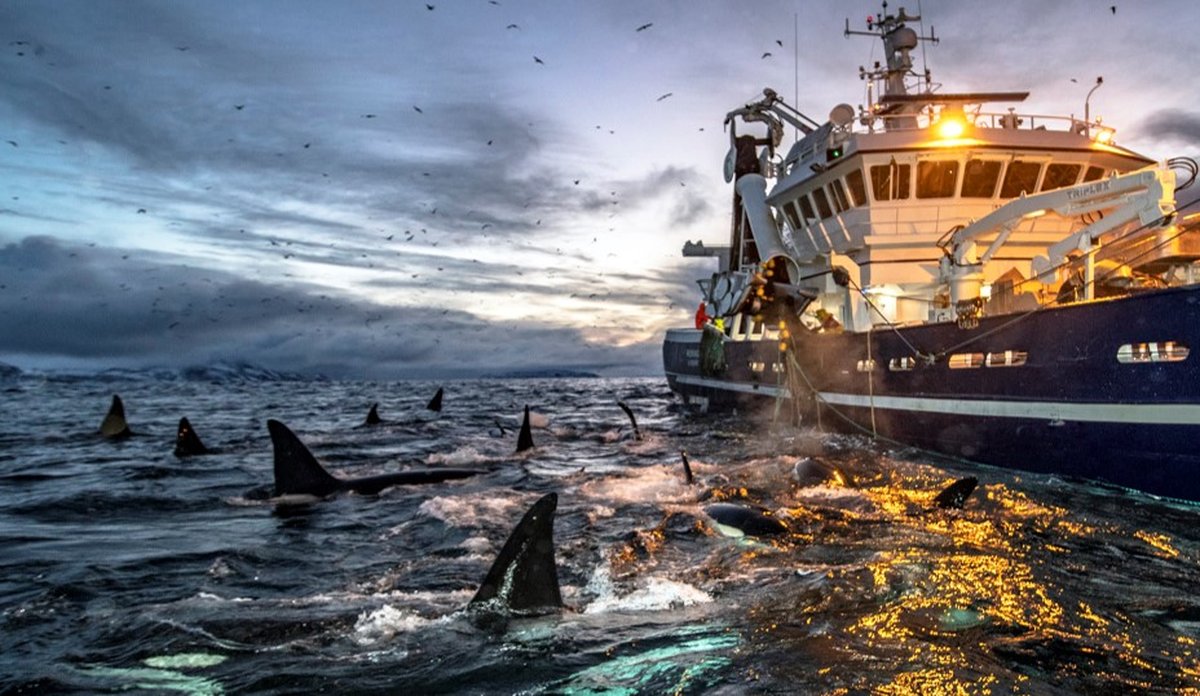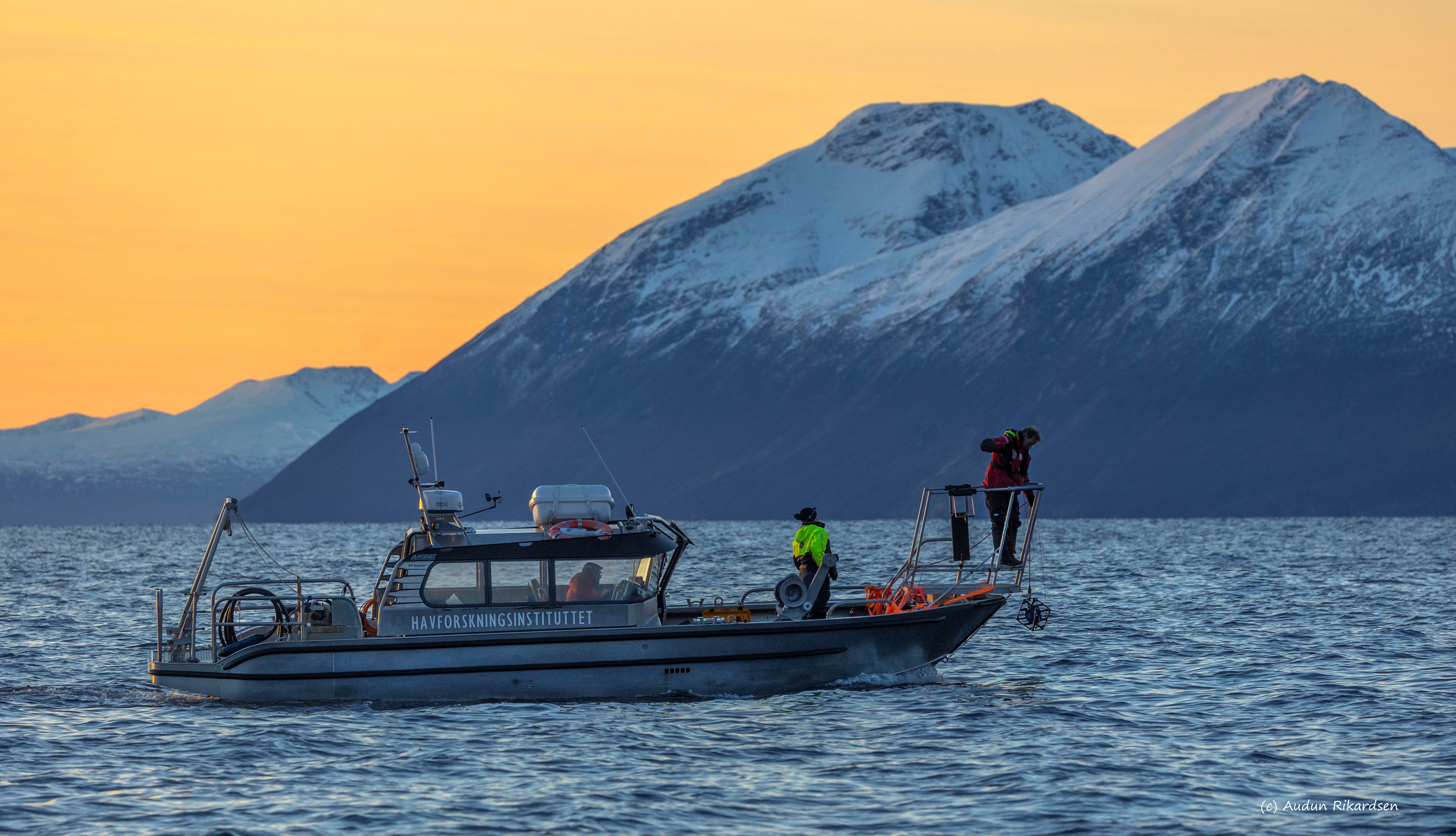Researchers have discovered sounds to keep orcas away from fish nets

There are often many whales around the fishing boats during the winter herring fishery in the fjords of Troms.
Photo: Audun Rikardsen / UiT The Arctic University of NorwayPublished: 13.05.2024 Updated: 03.06.2024
“The sound signals we used worked really well on orcas, but not as well on humpback whales. In general, the orcas immediately disappeared from the area around the fishing boats each time the sounds were played”, explains scientist Maria Tenningen.
Agile orcas
During the winter herring fishery in the fjords of Troms, researchers tested various sound signals.
“There are loads of whales around the fishing boats. So there is always a risk that they will become entangled in a net”, says Tenningen.
“And there are several reasons why it is important to avoid this. If whales are caught, it creates problems for both them and the fishers. The whales may be injured, or even drown, and the fishers may lose their catch and have their fishing gear destroyed”, she adds.
The humpback whales are the biggest problem for the fishers.
“They get entangled in the nets more often, and they are also harder to get out again on account of their size, their long pectoral fins and the wart-like tubercles on their bodies. It is less common for Orcas to end up in the fishers’ nets”, she says.
Final report ready
The project “Mapping and testing methods to reduce interactions between fisheries and whales”, which was managed by Tenningen, has now been completed.
Since its inception in 2021, researchers have sought to find the right sound signals to keep orcas and humpback whales away from fishing boats and nets.
The results were recently published in their final report.o
Humpback whales “tagged along” with the orcas
When Tenningen and her fellow researchers tested the various sound signals on the humpback whales, they saw little response. Although the signals appeared to generate a brief acoustic startle response, none of them managed to keep the whales away from the fishing boats.
But when orcas were also in the area, the humpback whales’ behaviour changed.
“The humpback whales seemed to react and may have been following the orcas. But when the humpback whales were alone, the reactions to the sound signals were not as obvious”, says Tenningen.
However, in these fisheries experiments the researchers used sound signals best suited to orcas. Humpback whales hear lower frequencies, which cannot be properly played without a more powerful loudspeaker than was available for the experiments.
Short and rapid sound signals
The sounds that worked on the orcas, which can also be heard by humans, were developed by researchers at the University of St Andrews in Scotland and Genuswave AS.
“The sounds that were tested are based on our best available knowledge about the hearing of orcas and humpback whales. The signals are very short, lasting just 200 milliseconds, and they rapidly increase in volume”, explains Tenningen.
The rapidly increasing volume is the key, because the sound needs to generate an unconscious acoustic startle response which the animals cannot grow accustomed to over time. In order to make the bursts of sound even more unpredictable to the animals, the sound signals were also played at random intervals and frequencies.
“The idea is that if the signals are rapid and short, it produces an unconscious flight response”, she explains.

Whale blow counts
To test the sound signals in the fjords of Northern Norway, the researchers simply lowered a loudspeaker into the water. They did this either from a normal fishing boat or from a smaller boat alongside it.
The researchers counted the number of whale blows around the fishing boat over a given time before, during and after the sound was played. This allowed them to estimate changes in the number of whales present between the three periods.
Next goal: sounds that work on humpback whales
The project, which has been a collaboration between the Institute of Marine Research, University of St Andrews and UiT The Arctic University of Norway and financed by the Norwegian Seafood Research Fund (FHF), will now be extended for a further two years.
The researchers’ tasks will include coming up with more practical ways for fishers to start using these sound signals, so they do not need to have large loudspeakers with lots of cables hanging down into the water from their boats.
“And then we want to find the right sound signals to keep humpback whales away from the fishing boats. Even when they are alone, without the orcas to help them”, says Tenningen.
